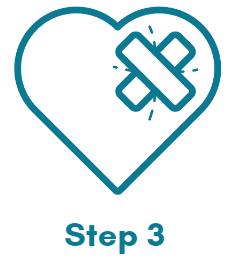Therapy for Sexual Assault and Rape
We recognize that discussing a sexual assault or rape may not feel safe because survivors are not always believed and because they are often blamed for what happened to them. If this was your experience, you might be questioning if the assault or rape even happened – if it was really a rape or assault, or if somehow you misunderstood what was happening or did something to cause it. Before we go any further we need to make this clear:
We believe you. You didn’t do anything to cause it. You can heal from it.
It’s okay if you don’t believe this – for now, we’ll believe it for you.
So often by the time survivors reach out for support they have spent too long suffering in silence. They feel permanently changed and don’t believe that things can improve. Others reach out for help immediately after and find that they did not get the support that they needed or that it only made things worse. We’re truly sorry if this was your experience and we’re glad you found us.
 New Moon Psychotherapy began as a practice devoted to supporting survivors of sexual violence such as sexual assault and rape. Our mission is to offer evidence-based therapy to survivors of sexual violence with clinicians who understand it’s impact and are extensively trained in helping people just like you recover from it. You do not have to keep trying to keep it together on the outside, while fighting a never ending battle on the inside. Before we get into how we can help, let’s first normalize what you’re going through.
New Moon Psychotherapy began as a practice devoted to supporting survivors of sexual violence such as sexual assault and rape. Our mission is to offer evidence-based therapy to survivors of sexual violence with clinicians who understand it’s impact and are extensively trained in helping people just like you recover from it. You do not have to keep trying to keep it together on the outside, while fighting a never ending battle on the inside. Before we get into how we can help, let’s first normalize what you’re going through.
What is the psychological impact of sexual assault and rape?
Sexual Assault and rape are traumatic events and so will impact your thoughts, feelings, and behaviours. Typically, there are four categories of symptoms:
Hypervigilance
| Intrusions and Re-Experiencing
|
Difficult Thoughts and Emotions
| Avoidance
|
In addition to the typical ways in which people are impacted by trauma, sexual assault and rape survivors are further impacted by the outdated and problematic beliefs about sexual violence which are prevalent in our society. Almost all sexual assault and rape survivors that we work with believe that since this happened to them, they are now dirty, forever changed, and will not be accepted by others. This is shame. This is the reason survivors get stuck in their healing and go on to develop complications like PTSD, anxiety, and depression.
“If you put shame in a Petrie dish it needs three things to survive: secrecy, silence, and judgment”
– Brené Brown
Women have been conditioned to believe that the things that we wear, the way that we act, and the places that we go are the reasons that the assault happened. Too many of us hear:
You were wearing that dress?
Are you sure it was a rape? You were drinking a lot.
Weren’t you dating them?
Why didn’t you fight them off?
Instead on focusing on the perpetrator of the crime (yes, sexual violence is a crime) and providing an opportunity for connection and healing, these judgments breed secrecy and silence. Survivors believe that others won’t listen, that they will be judged, or that the perpetrator will be believed over them. This leads to confusion, fear and shame, which results in secrecy and silence. This is why so many survivors wait so long to receive support and begin their healing journeys.
The good news is that this way of thinking and these beliefs are complete B.S. They are symptoms not facts. Just as a symptom of a cold is a cough and a symptom of allergies is a sneeze, shame and blame are a symptom of sexual assault and rape. We’ve said this before and we will say it again – you may not believe it yet and that’s okay. We will believe it for you.
How can New Moon Psychotherapy help?
While we are devastated that this happened to you – we are hopeful that you can heal. Trauma is one of the only mental health conditions for which we know the exact cause and have decades of research to guide our treatment of it. In fact, there are evidence-based therapies – the therapies that research shows work quickly and effectively to help you find relief from symptoms of sexual assault and rape.
Our team is specially trained to support sexual assault and rape survivors of all ages including teenagers, young adults, and adults. We also support individuals of all cultural backgrounds, sexual orientations, and gender identities.
Some of the most effective treatments for survivors of sexual assault and rape are:
Cognitive Processing Therapy (CPT)
Originally developed to help survivors of sexual violence who are experiencing PTSD stemming from sexual violence. It is especially useful if you are experiencing shame and noticed many changes in your thoughts since the event. Some common thoughts are: “It’s my fault”, “I should/shouldn’t have done X”, “if I only X, then Y”, “I can’t trust myself”,” others can’t be trusted”, “the world is dangerous”, “I will always be this way”. Treatment is typically 3-4 months.
Eye Movement Desensitization and Reprocessing (EMDR)
EMDR can be a powerful therapy because it works to changes how our brain stores our trauma memories. It can be especially helpful for people who experience recurring flashbacks or have a hard time speaking about their traumas. It involves a combination of talk therapy with non-invasive bilateral stimulation (following a sound, moving your eyes, or tapping your hands).
Prolonged Exposure Therapy (PE)
This therapy has been in use since 1980 and there are countless studies that show it’s benefit for individuals who have experienced trauma and who have noticed significant changes in the activities that they engage in. If you notice that since the assault/rape you have given up your hobbies or avoid safe places associated with the event out of fear that it will bring you memories or put you in harm’s way, then this might be the best therapy for you. Treatment is typically 3-4 months.
Dialectical Behaviour Therapy for PTSD (DBT-PTSD)
This is a novel therapy created for individuals who are experiencing co-occurring symptoms of borderline personality disorder (BPD) and complex trauma. Typically, individuals who benefit from this trauma therapy have experienced more than one sexual assault and are struggling to cope with this as well as BPD. Treatment is typically 8-12 months.
Sensorimotor Psychotherapy and Somatic Psychotherapies
These are novel approaches to the treatment of trauma which are based on the belief that our bodies are impacted by our traumatic experiences (the body really does keep the score). They are drawn from research in physiology, neuroscience, psychology, and sociology.
Somatic Psychotherapy can be particularly helpful for individuals who experience somatic symptoms following the traumatic event. For example – physical pain, hyperarousal and panic, unexplained illnesses, etc.
Sensorimotor Psychotherapy helps individuals become aware of how their bodies communicate emotions and give them more control over their emotions without having to talk about the distressing event.
Your therapist might decide that there are other approaches that might be helpful. It is also possible that once your trauma symptoms have settled you might benefit from working with a couple’s therapist, a sex therapist, or a family therapist to deepen your healing. We have one of each on our team to support all phases of your healing journey.
Additionally, to move out of isolation and towards healing, we offer therapy groups for survivors to learn and form community with other survivors as well as groups for loved ones who might be struggling with effectively supporting the survivor in their life.
Not every therapy will work for everyone at all points in time so it’s important to find the correct approach to meet your current needs.
What if I don’t know what therapy is right for me?
 Starting therapy and choosing the right therapist can be overwhelming. We want to make this process as stress free as possible. If you choose to meet with a therapist at New Moon Psychotherapy, you will first have a brief call with our administrative assistant or be asked to complete a brief intake form. The information that you share will help us determine which therapist would be a good fit for you.
Starting therapy and choosing the right therapist can be overwhelming. We want to make this process as stress free as possible. If you choose to meet with a therapist at New Moon Psychotherapy, you will first have a brief call with our administrative assistant or be asked to complete a brief intake form. The information that you share will help us determine which therapist would be a good fit for you.
You will be connected with the therapists that you are considering working with for a complimentary 15-minute consultation. This is a chance to ask any questions that you might have and to get a feel for the therapists personality so that you can decide if this therapist would be the right fit for you.
Once you choose a therapist, that therapist will perform an assessment and discuss your therapeutic goals. They will then use this information to create a treatment plan that is tailored to your unique needs.






